
ANTONIO GRAMSCI Ships Nostalgia
Gramsci understood the civil society as an expression of what he called hegemony, that is, a pattern of established power relations among social groups in a given historical political situation - a "historic bloc". Hegemony is not simply a matter of domination; it also requires "direction" or, if one wishes, headship, consensual.
:max_bytes(150000):strip_icc()/GettyImages-691248029-5c50a9c646e0fb00014a2ead.jpg)
Mọi thứ bạn cần biết về thuyết chức năng Gấu Đây
Antonio Gramsci is arguably one of the most influential thinkers in postcolonial theory, particularly due to his notion of the subaltern and his situated perspective, i.e., his emphasis on the terrestrial aspects of culture and politics. This essay explores how Gramsci's own lived experience may have contributed to his subaltern philosophy.
Rerum Romanarum Via Antonio Gramsci
Davidson, Alastair. Antonio Gramsci: Towards an Intellectual Biography. Leiden, The Netherlands, and Boston: Brill, 2016. DOI: 10.1163/9789004326309. First published in 1977 this book traces Gramsci's growth as a socialist revolutionary, connecting his early years as an activist with his later theoretical formulations.

Año nuevo // Antonio Gramsci Lobo Suelto!
University of Chicago Press, 328 pages, $35.00. As Gramsci's latest biographer, the French historian Jean-Yves Frétigné, reports in To Live Is to Resist: The Life of Antonio Gramsci, Gramsci.
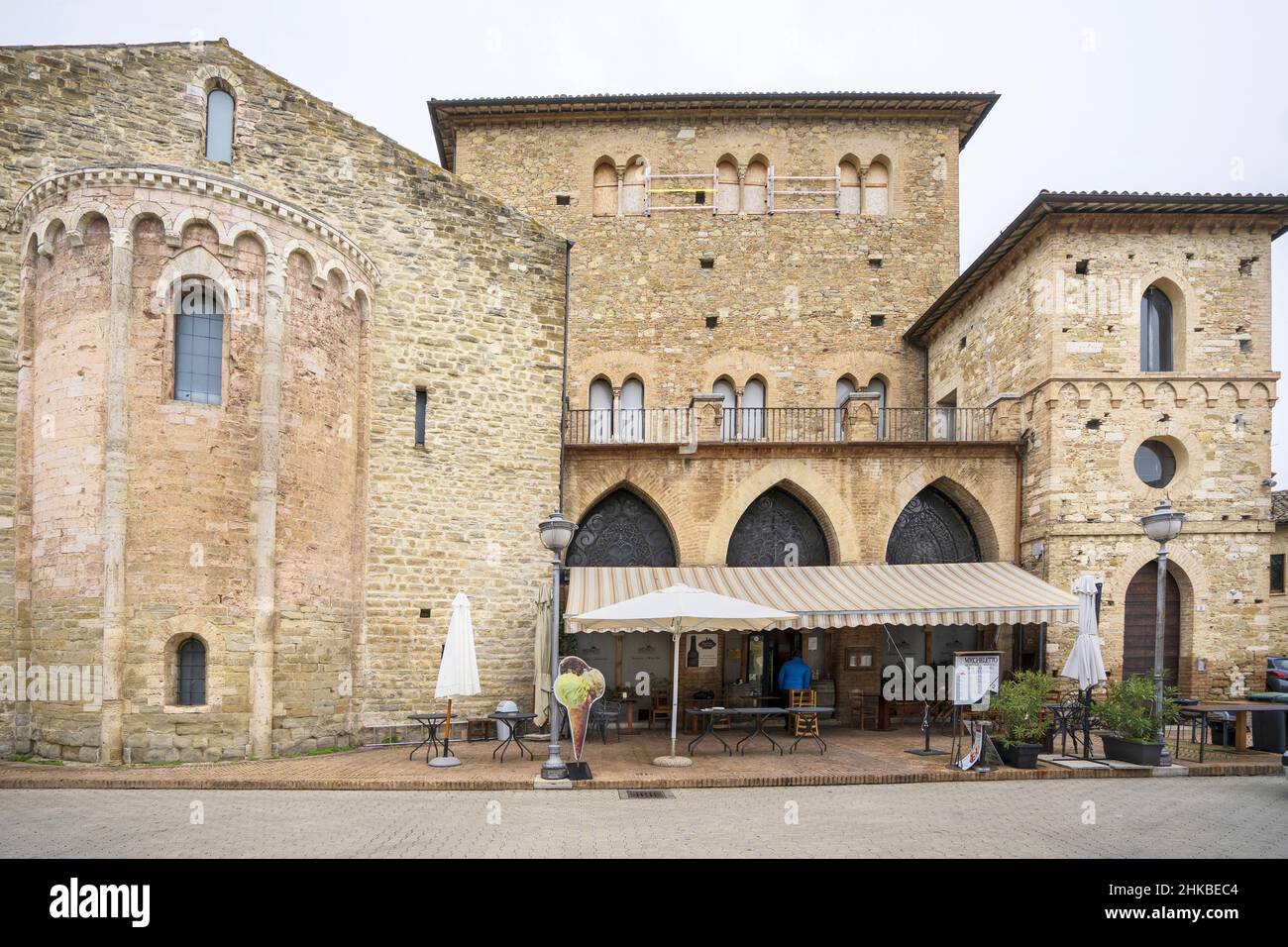
Largo Antonio Gramsci square, Village, Bevagna, Umbria, Italy, Europe
Making Sense of Antonio Gramsci An interview with The Italian communist Antonio Gramsci left behind a rich and complicated legacy of thought on socialist strategy for transforming the world. Historian Michael Denning guides us through the great — and misunderstood — thinker. Interview by Daniel Denvir
AGIKgqMKgxz4PO05pKHVuRRzkXKENn2PuUDRFH6roA1B=s900ckc0x00ffffffnorj
Antonio Francesco Gramsci, most widely known for his theory of hegemony, is a thought leader who has made significant contributions to education, philosophy, and politics. Born in Ales on the island of Sardinia and imprisoned in Italy in 1926, Gramsci died while incarcerated.
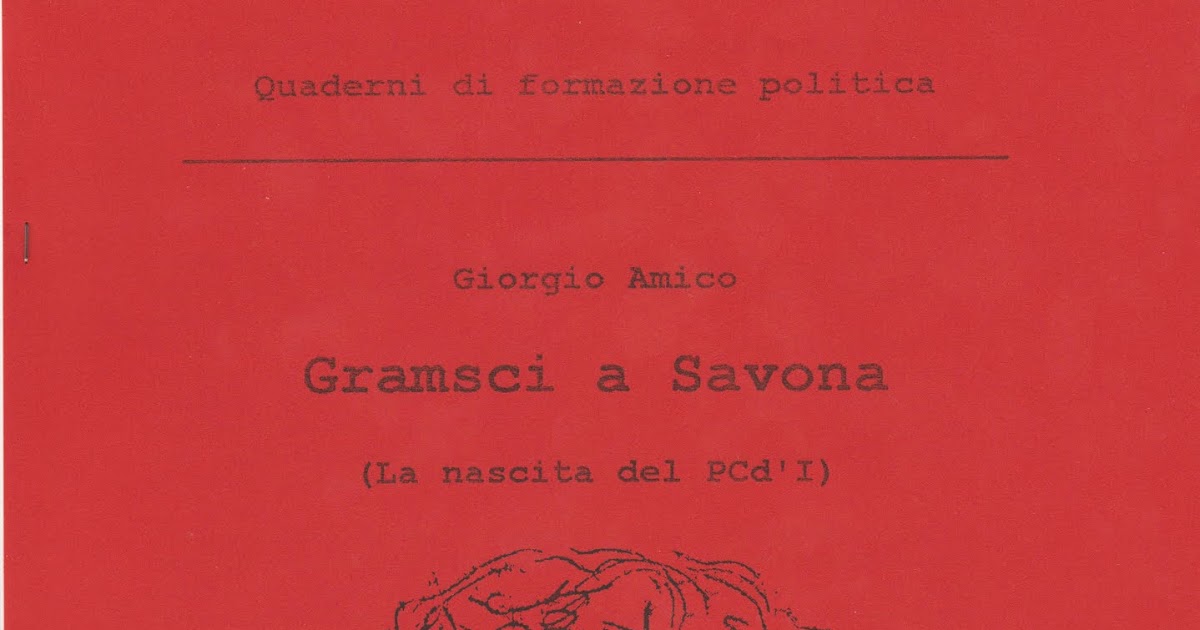
Vento largo Antonio Gramsci e la nascita del Partito comunista a Savona
Before reviewing the contents, a few words of Gramsci: Antonio Gramsci was one of the Leftist intellectuals imprisoned by the Fascist government in Italy. He was in prison between November 8, 1926 and August 24, 1935, when he was moved to a medical facility on health grounds. He died on April 27, 1937. His Prison Notebooks were started on.
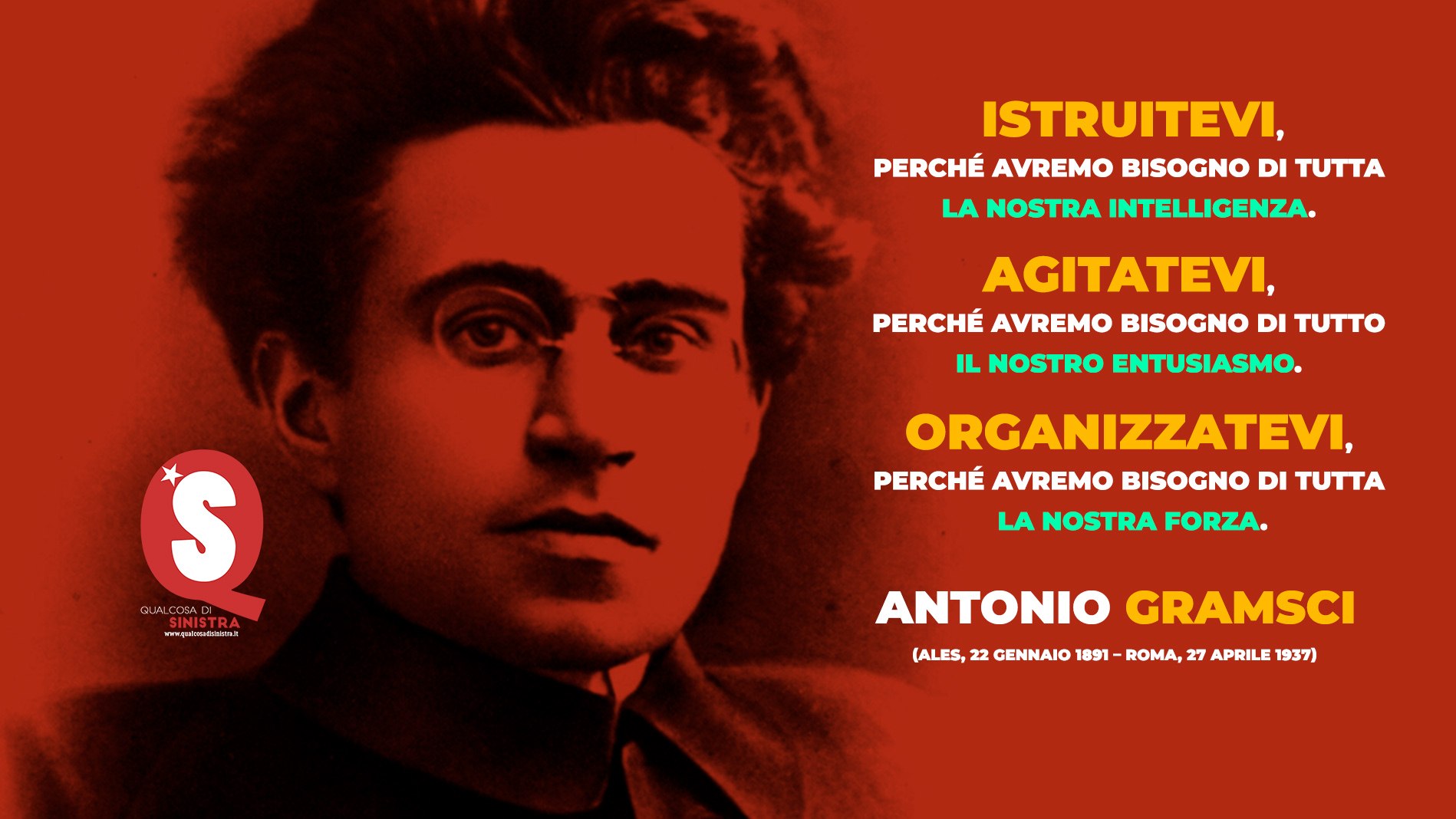
Antonio Gramsci, 130 anni e non sentirli Qualcosa di Sinistra
At first glance, José Martí's and Antonio Gramsci's lives are not strictly contemporary. Their existence overlapped for only four years: Gramsci was born in 1891 and Martí died in 1895. Most significantly, their lives matured in extremely distant contexts such as colonial Cuba and post-unification Italy, seeking also diverse political.

Vento largo Antonio Gramsci e la nascita del Partito comunista a Savona
ABSTRACT. This article catalogues and contextualizes Antonio Gramsci's pre-prison newspaper articles on Futurism, as well as each reference to Futurism in the Quaderni del carcere, to show that Gramsci is equally attentive to aesthetic and political concerns in his evaluation of the movement, and that they present an evolving but coherent view.This perspective is conditioned by awareness of.

Bevagna, Largo Antonio Gramsci, Vogelpredigt des hl. Franz… Flickr
The life, times, and ideas of Antonio Gramsci. Submitted by martin on 19 January, 2021 - 9:18 Author: Martin Thomas. Transcript of a talk at a Workers' Liberty Zoom forum on 17 January 2021. Download the Powerpoint used for the talk here. In February 1926 Stalin was challenged face to face by a non-Russian communist for the last time.

Antonio Gramsci
The liberal international order (LIO) is in crisis. The near-collapse of the global financial system in 2008; the emergence of 'statist' economies (especially the BRIC(S) states) as a counter-model; the rise of right-wing movements across Europe and the United States since the crisis; the Brexit vote and Trump's election in 2016—these are just the most obvious signs. 1 All these events.
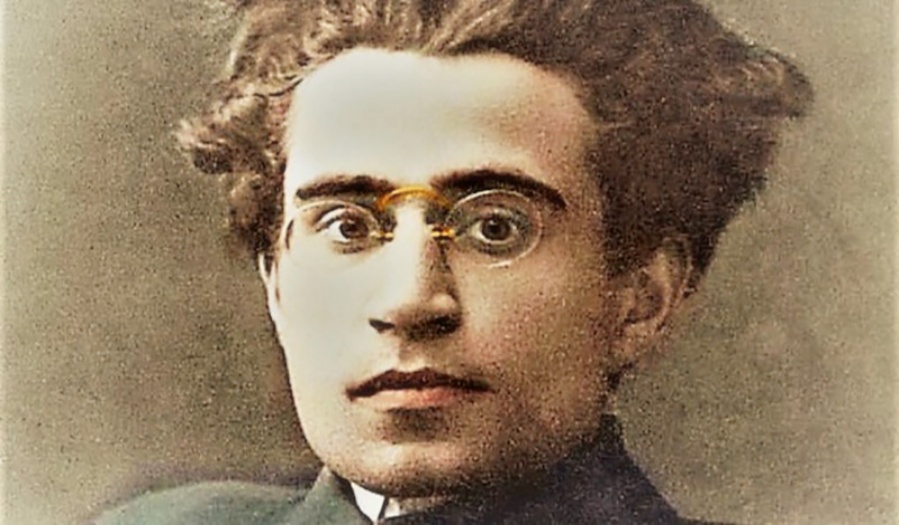
In Defense of Communism Antonio Gramsci — I hate the indifferent
In Gramsci's ideal world of cultural and ethical. hegemony, the philosophy of praxis has secured the consent of every one and, since the Marxist doctrine is the only ruling philosophy, it is. the dialectic which determines the pattern of human life. Everything is part of the new historical formation, and unrestricted.
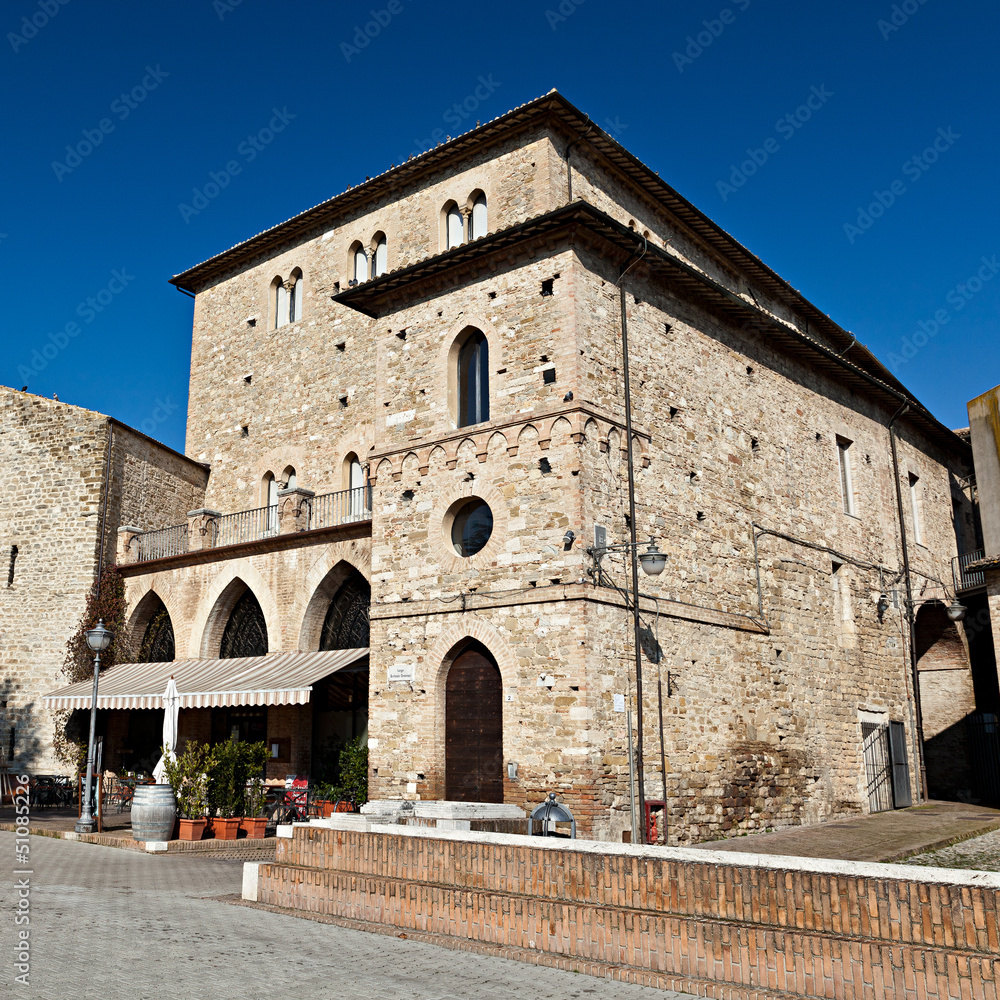
Foto Stock Bevagna, Largo Antonio Gramsci Adobe Stock
11.01.2021 History Books How Antonio Gramsci's Ideas Went Global By Marzia Maccaferri Antonio Gramsci was twentieth-century Italy's greatest intellectual. Fifty years ago, the English translation of Selections from the Prison Notebooks allowed his unorthodox Marxism to spread worldwide. A photograph of Antonio Gramsci dated 1921.

Rigenerazione di Largo Antonio Gramsci il Rotary proclama il progetto
An Introduction to Gramsci's Life and Thought. Transcribed to www.marxists.org with the kind permission of Frank Rosengarten. Antonio Gramsci was born on January 22, 1891 in Ales in the province of Cagliari in Sardinia. He was the fourth of seven children born to Francesco Gramsci and Giuseppina Marcias. His relationship with his father was.

Largo Antonio Gramsci square, Village, Bevagna, Umbria, Italy, Europe
Antonio Gramsci was born in Sardinia in 1891. At a very young age he moved to Turin; it was in the Piedmontese capital that he was first attracted to socialist ideas, and where he joined the Italian Socialist Party (PSI). After the First World War, Italy was shaken by a two-year wave of strikes, worker and peasant protests.

in Svizzera c'è il mare Antonio Gramsci
Antonio Gramsci (born Jan. 23, 1891, Ales, Sardinia, Italy—died April 27, 1937, Rome) intellectual and politician, a founder of the Italian Communist Party whose ideas greatly influenced Italian communism.